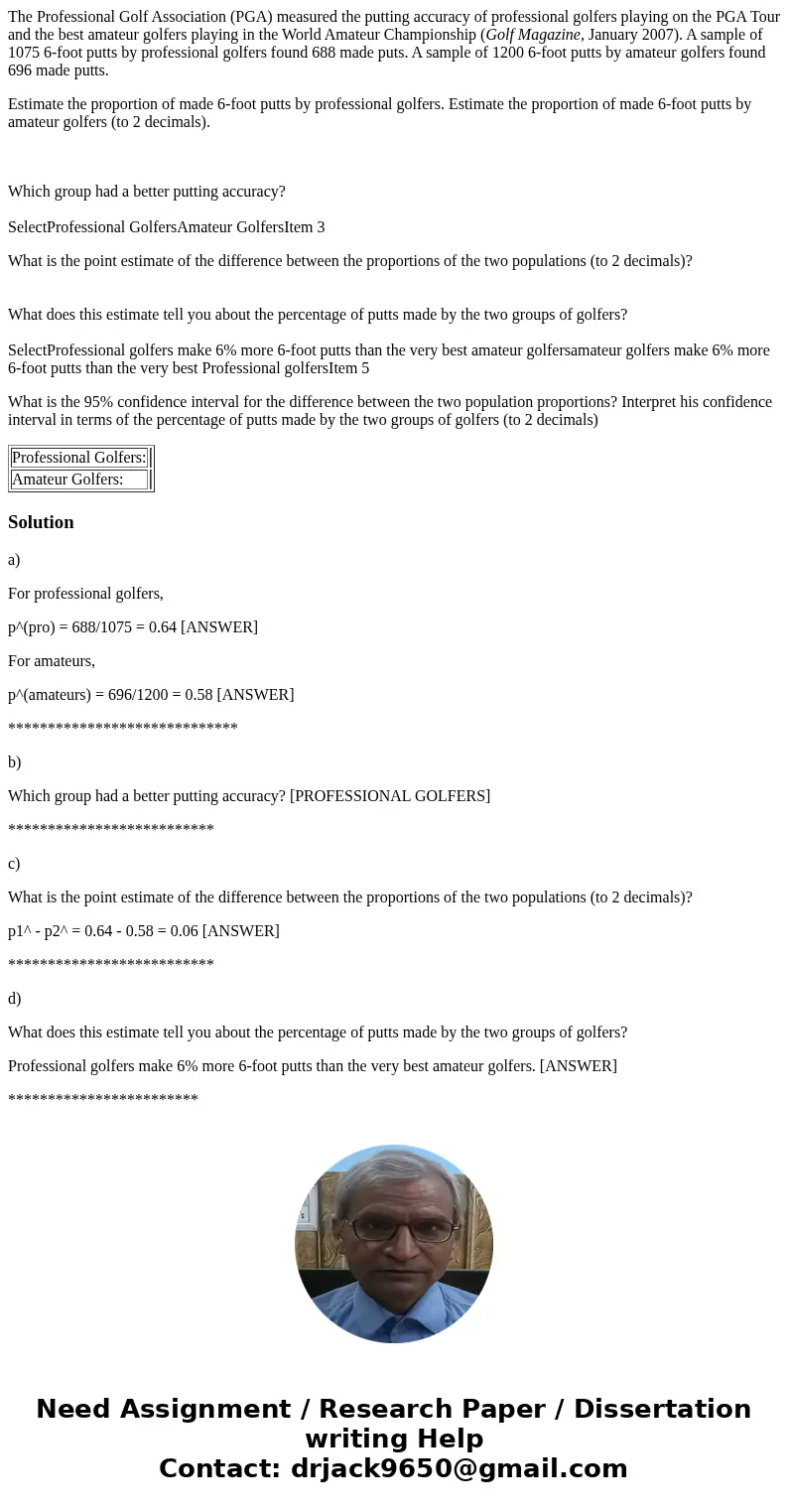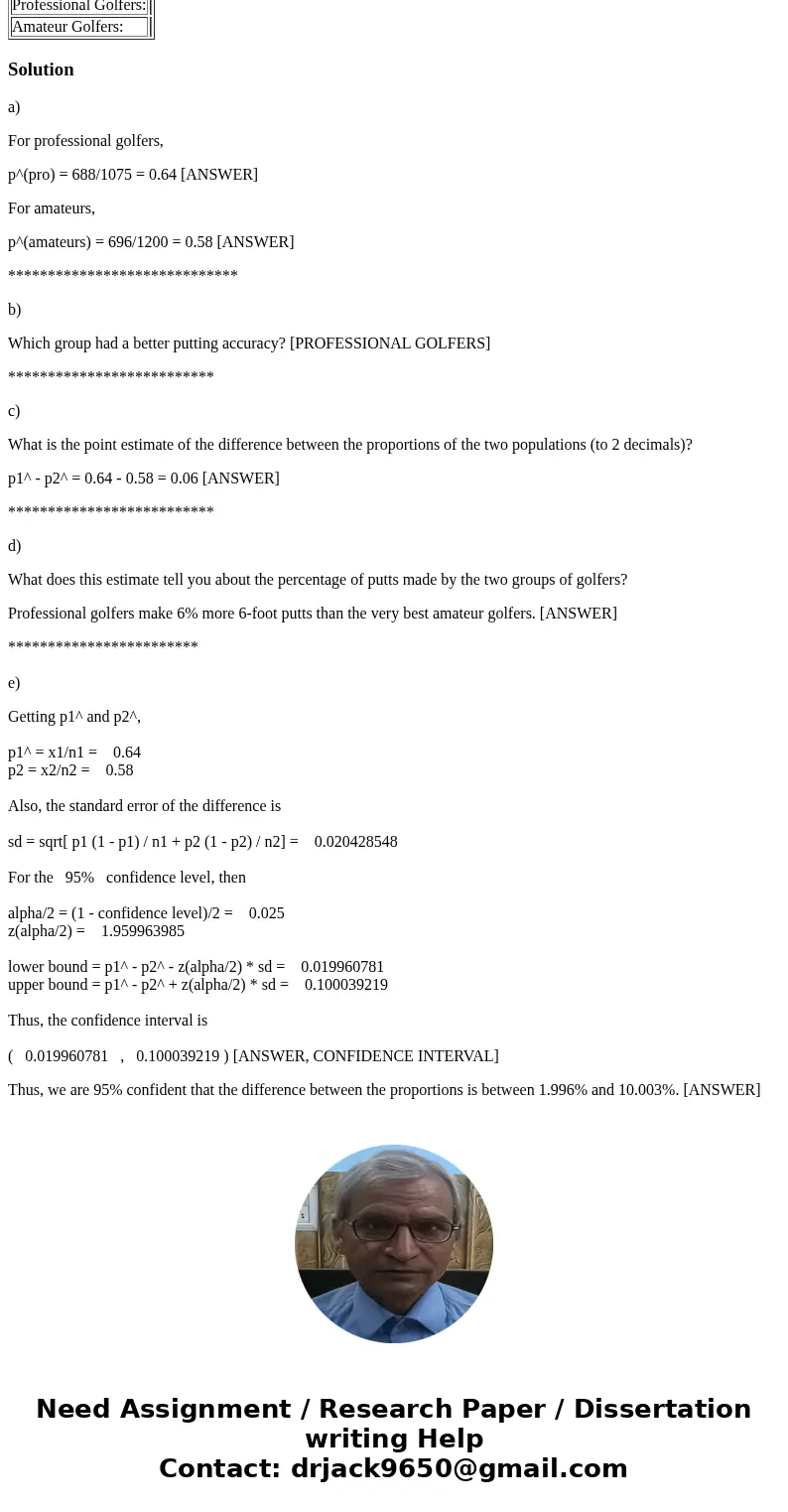The Professional Golf Association PGA measured the putting a
The Professional Golf Association (PGA) measured the putting accuracy of professional golfers playing on the PGA Tour and the best amateur golfers playing in the World Amateur Championship (Golf Magazine, January 2007). A sample of 1075 6-foot putts by professional golfers found 688 made puts. A sample of 1200 6-foot putts by amateur golfers found 696 made putts.
Estimate the proportion of made 6-foot putts by professional golfers. Estimate the proportion of made 6-foot putts by amateur golfers (to 2 decimals).
Which group had a better putting accuracy?
SelectProfessional GolfersAmateur GolfersItem 3
What is the point estimate of the difference between the proportions of the two populations (to 2 decimals)?
What does this estimate tell you about the percentage of putts made by the two groups of golfers?
SelectProfessional golfers make 6% more 6-foot putts than the very best amateur golfersamateur golfers make 6% more 6-foot putts than the very best Professional golfersItem 5
What is the 95% confidence interval for the difference between the two population proportions? Interpret his confidence interval in terms of the percentage of putts made by the two groups of golfers (to 2 decimals)
| Professional Golfers: | |
| Amateur Golfers: |
Solution
a)
For professional golfers,
p^(pro) = 688/1075 = 0.64 [ANSWER]
For amateurs,
p^(amateurs) = 696/1200 = 0.58 [ANSWER]
*****************************
b)
Which group had a better putting accuracy? [PROFESSIONAL GOLFERS]
**************************
c)
What is the point estimate of the difference between the proportions of the two populations (to 2 decimals)?
p1^ - p2^ = 0.64 - 0.58 = 0.06 [ANSWER]
**************************
d)
What does this estimate tell you about the percentage of putts made by the two groups of golfers?
Professional golfers make 6% more 6-foot putts than the very best amateur golfers. [ANSWER]
************************
e)
Getting p1^ and p2^,
p1^ = x1/n1 = 0.64
p2 = x2/n2 = 0.58
Also, the standard error of the difference is
sd = sqrt[ p1 (1 - p1) / n1 + p2 (1 - p2) / n2] = 0.020428548
For the 95% confidence level, then
alpha/2 = (1 - confidence level)/2 = 0.025
z(alpha/2) = 1.959963985
lower bound = p1^ - p2^ - z(alpha/2) * sd = 0.019960781
upper bound = p1^ - p2^ + z(alpha/2) * sd = 0.100039219
Thus, the confidence interval is
( 0.019960781 , 0.100039219 ) [ANSWER, CONFIDENCE INTERVAL]
Thus, we are 95% confident that the difference between the proportions is between 1.996% and 10.003%. [ANSWER]


 Homework Sourse
Homework Sourse